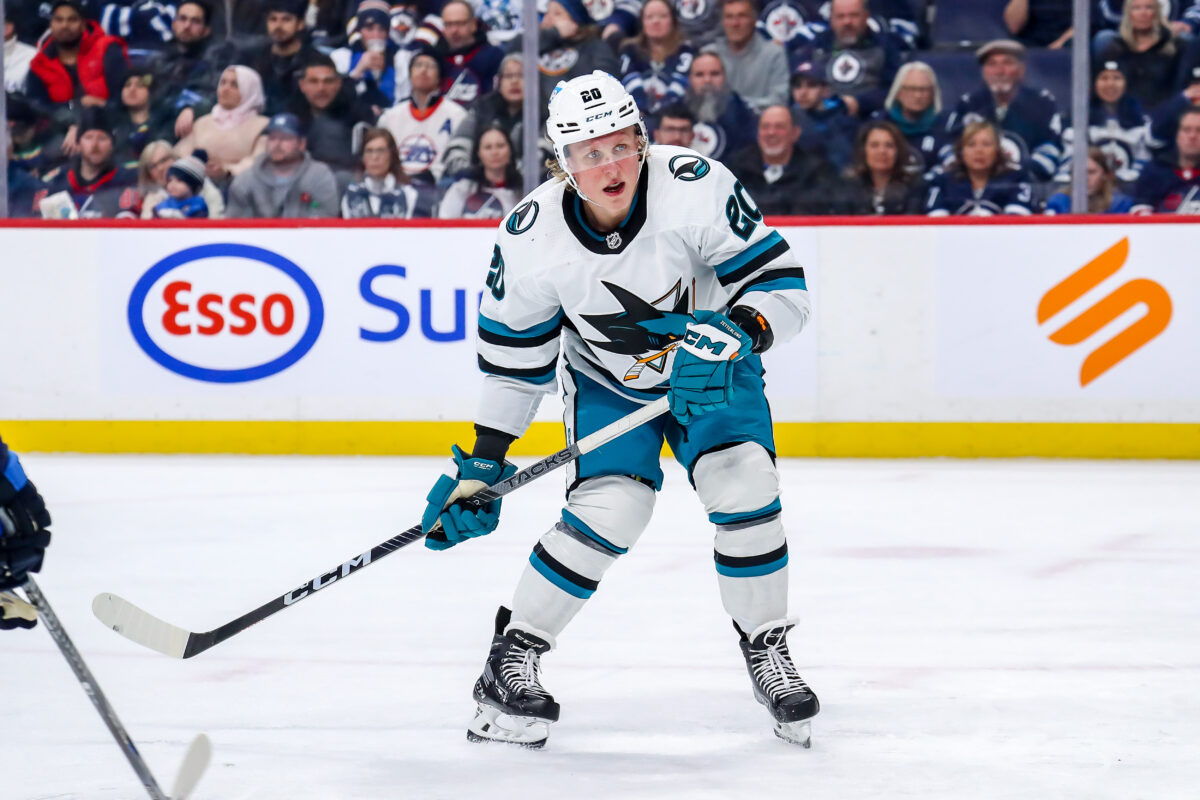Pretty much everyone knew the San Jose Sharks would be bad in 2023-24. But hardly anyone could have predicted just how bad they would be. They are 0-9-1 through 10 games, already in the top 10 longest winless streaks of all time to start a season and inching dangerously close to the record set by the 1943-44 New York Rangers. They have been outscored by over 30 goals, thanks in part to a brutal 10-1 loss on Thursday (Nov. 2) to the Vancouver Canucks, which took their skid from unfortunate to downright humiliating. The Sharks clearly have extensive problems in all facets of their game, with struggles on one end setting the tone for the other, and providing the most comprehensive explanation for why they can’t win games.
Sharks’ Defense Unable to Generate Consistent Offense
When I play the NHL video game series, I’ll occasionally encounter an opponent far better than me (or a CPU difficulty level too tough for me), and the same thing happens every time. The opposition dominates the puck possession battle and something as simple as clearing the zone becomes an ordeal. I turn the puck over constantly. On the rare occasions I do get into the offensive zone, I have practically no choice but to take low-quality shots and take them quickly. If I don’t, I’ll lose the puck and be forced into another long period of defense without having created a single look at the net.
The Sharks are basically doing a real-life version of this on a nightly basis. They spend far more time playing defense than offense, unable to break out of the defensive zone and giving their opponents multiple good looks on almost every possession. By contrast, their own offensive chances are often limited to a single shot, and frequently don’t even get that far. Their defensive struggles often force the offense to dump the puck and make a change, creating another long defensive sequence which leads to another limited offensive possession, and so on.

The results show up in the stats, and they aren’t pretty. They control the puck about 42.9% of the time, a slight improvement from the start of the season but still disappointing. They are being outshot 378-252, have conceded over 100 more scoring chances than they’ve generated, and have allowed 102 high-danger scoring chances while creating 67. When the defense and offense impact one another so negatively, the Sharks just won’t win many games.
Almost Any Sharks Deficit Feels Insurmountable
The blowout loss to the Canucks was basically doomed from the start. A Nico Sturm double minor penalty just over a minute into the game put San Jose on a lengthy penalty kill without one of their best shorthanded players. Vancouver scored twice, and the game felt over.
Or, more specifically: the game felt over after just four minutes of play.
Related: Sharks Struggling to Play a Full 60 Minutes
The Sharks’ offense, which has produced multiple goals in just one game this season, has been so anemic that any multi-goal deficit seems impossible to overcome. Even a one-goal deficit feels challenging at best. The defensive unit, which is already well below the average quality of an NHL defense, must feel enormous pressure to perform. Knowing that you can allow a maximum of one or two goals every night to give your team a chance to win is incredibly difficult. Playing with such a burden can easily lead to mistakes and breakdowns, and as such, the Sharks are allowing over four goals per game. And as already established, a less competent defensive performance can lead to an even worse offense.
The Sharks have enough trouble trying to win games. The fact that they can’t trail at any point if they want to have a chance doesn’t make their situation any easier.
Historically Bad Start Has No Clear Solution
If every game the Sharks were playing were close, you could chalk the tough start up to bad luck and suggest a few tweaks. Instead, only three of their games have been interesting in the final minutes. There are no ways to change this overnight. Perhaps the team could call up some players from the minors in hopes of a spark, but that would lead to difficulties with roster management and wouldn’t necessarily be the best move for youth development. For now, we’re looking at a San Jose team that can’t keep up on the ice, is already worn down by the constant losing, and could easily get worse before getting better. The 82-game schedule suggests the Sharks probably won’t go winless for the entire season, but the fact that this isn’t absolutely certain says enough.